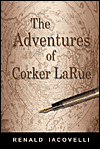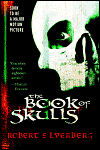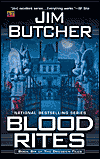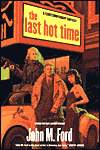
The Adventures of Corker LaRue, by Renald Iacovelli
Book Review by Jeff Edwards
Have you read this book?
Corker LaRue learned the hard way that life is just one "freakish mishap" after another: First, his
parents were killed by a seventy-pound meteorite; then, his aunt and uncle were struck by a
re-activated torpedo. But there's more trouble ahead for Corker: His infatuation with a young woman
"as cruel as she was beautiful" will launch him on a harrowing journey around the world - and
beyond.
It takes a special kind of reader to persevere through The Adventures of Corker LaRue: someone willing to overlook poor proofreading; someone able to adapt to unwieldy prose ("I have always recognized in my speech a certain stiff correctness of grammar and phrasing that sounds affected"). But even the most dedicated reader may be stymied by the fundamental hurdle: Corker LaRue is a picaresque novel, and forgoes a conventional plot in favor of a series of unrelated incidents strung together at random. Events quickly cross the line from "highly improbable" to "fantastically fraudulent": Among other things, Corker is attacked by a shark, swallowed by a whale, and abducted by aliens.
In today's environment of "high concept" books and movies, the picaresque novel faces an uphill battle. Why, then, did "Forrest Gump" ascend to cultural icon status while Corker LaRue remains virtually unknown? (After all, Forrest and Corker survive similar adventures: both narrowly escape hostile island natives and spend time inside spacecrafts.) You can chalk up the success - or failure - of each book to the appeal of its title character. Forrest endears himself to readers despite his frequent use of racial slurs; the good-natured "idiot" doesn't know any better: He's innocently repeating expressions that he has heard. Corker, however, should know better: He claims to have read nearly 2,000 important works of literature, yet attributes dialogue like "Yamaha mitsubishi!" to Japanese soldiers and assigns names like "Sister Pasta" and "Sister Pepperoni" to Italian nuns. It's difficult to sympathize with a character who consistently displays a haughty, put-upon attitude while propagating ethnic stereotypes.
There's an old adage to "write what you know," so it's not surprising that the richest passages in The Adventures of Corker LaRue are those in which author Renald Iacovelli satirizes the publishing industry. Corker's uncle endures overwhelming rejection before deciding to self-publish his poetry; Iacovelli admits that his own experiences as a novelist have been much the same. Corker's attempt at a manuscript is rejected by multiple publishers, too; it is only when he agrees to crank out a Krass Media "product" that Corker becomes a bestselling author.
Renald Iacovelli is in no danger of selling out; on the contrary, he's courting obscurity by writing a picaresque novel and releasing it through PublishAmerica, a print-on-demand company spurned by traditional bookstores. To his credit, Iacovelli continues to follow his muse: His latest offering, "The Polity of Beasts," is available at Lulu.com.
It takes a special kind of reader to persevere through The Adventures of Corker LaRue: someone willing to overlook poor proofreading; someone able to adapt to unwieldy prose ("I have always recognized in my speech a certain stiff correctness of grammar and phrasing that sounds affected"). But even the most dedicated reader may be stymied by the fundamental hurdle: Corker LaRue is a picaresque novel, and forgoes a conventional plot in favor of a series of unrelated incidents strung together at random. Events quickly cross the line from "highly improbable" to "fantastically fraudulent": Among other things, Corker is attacked by a shark, swallowed by a whale, and abducted by aliens.
In today's environment of "high concept" books and movies, the picaresque novel faces an uphill battle. Why, then, did "Forrest Gump" ascend to cultural icon status while Corker LaRue remains virtually unknown? (After all, Forrest and Corker survive similar adventures: both narrowly escape hostile island natives and spend time inside spacecrafts.) You can chalk up the success - or failure - of each book to the appeal of its title character. Forrest endears himself to readers despite his frequent use of racial slurs; the good-natured "idiot" doesn't know any better: He's innocently repeating expressions that he has heard. Corker, however, should know better: He claims to have read nearly 2,000 important works of literature, yet attributes dialogue like "Yamaha mitsubishi!" to Japanese soldiers and assigns names like "Sister Pasta" and "Sister Pepperoni" to Italian nuns. It's difficult to sympathize with a character who consistently displays a haughty, put-upon attitude while propagating ethnic stereotypes.
There's an old adage to "write what you know," so it's not surprising that the richest passages in The Adventures of Corker LaRue are those in which author Renald Iacovelli satirizes the publishing industry. Corker's uncle endures overwhelming rejection before deciding to self-publish his poetry; Iacovelli admits that his own experiences as a novelist have been much the same. Corker's attempt at a manuscript is rejected by multiple publishers, too; it is only when he agrees to crank out a Krass Media "product" that Corker becomes a bestselling author.
Renald Iacovelli is in no danger of selling out; on the contrary, he's courting obscurity by writing a picaresque novel and releasing it through PublishAmerica, a print-on-demand company spurned by traditional bookstores. To his credit, Iacovelli continues to follow his muse: His latest offering, "The Polity of Beasts," is available at Lulu.com.
|
Click here to buy The Adventures of Corker LaRue, by Renald Iacovelli on Amazon
|
The Adventures of Corker LaRue, by Renald Iacovelli on Amazon

| More Books You Might Like |
Comment on The Adventures of Corker LaRue, by Renald Iacovelli




